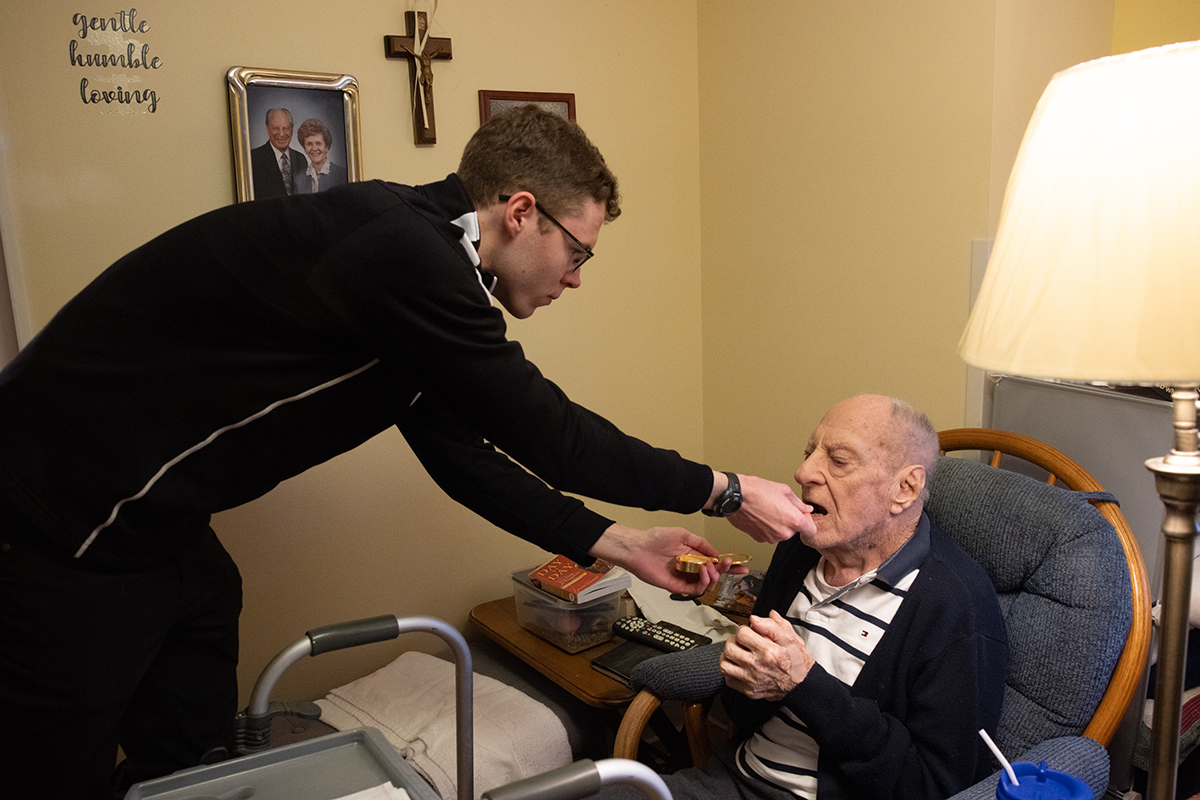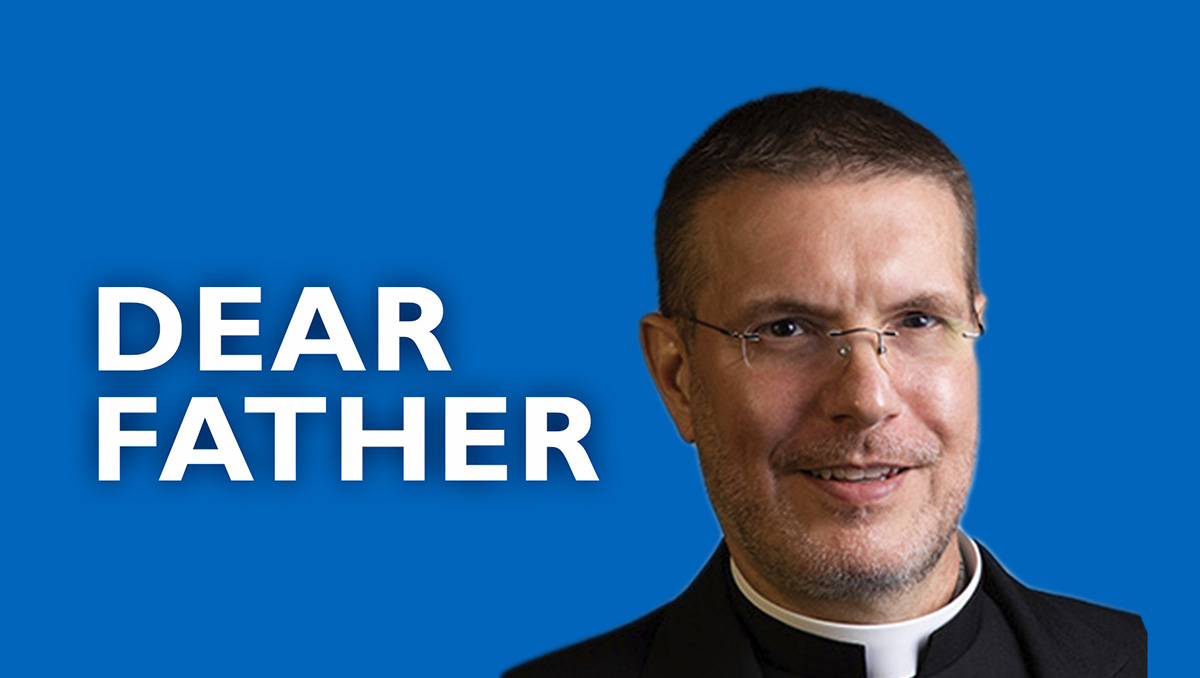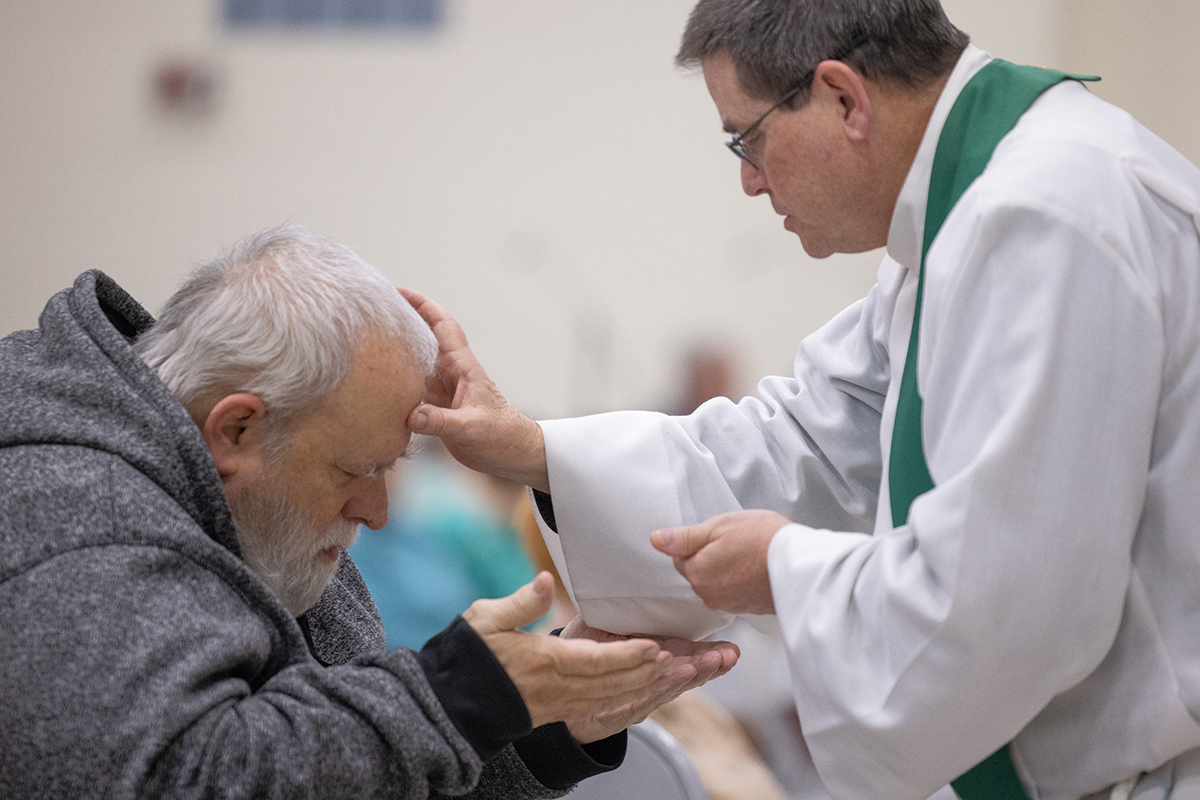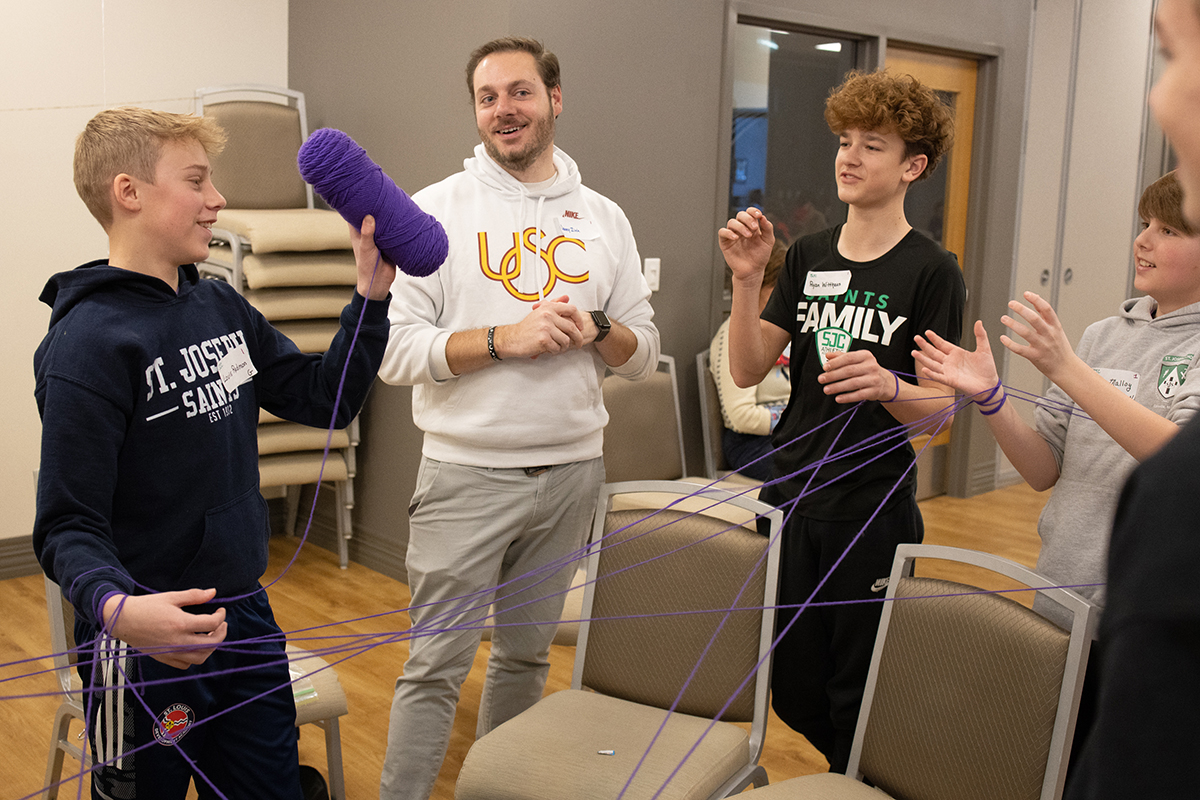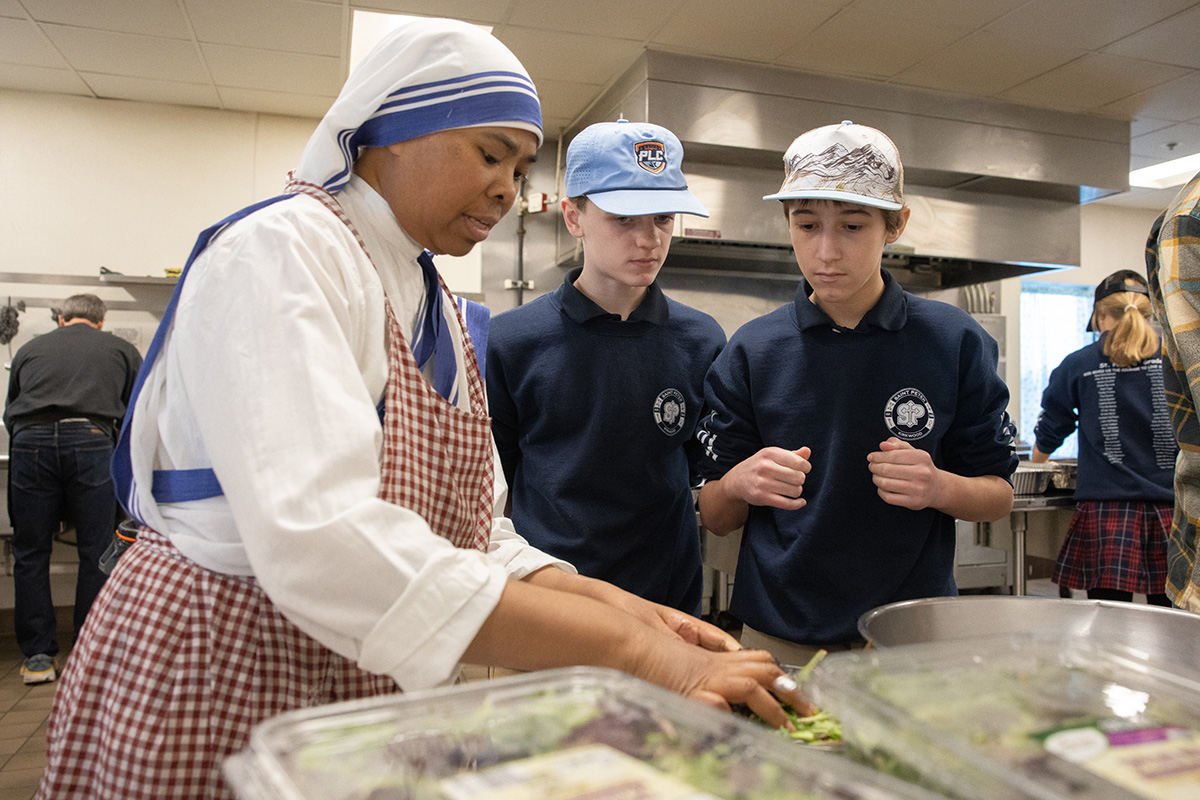The source and summit
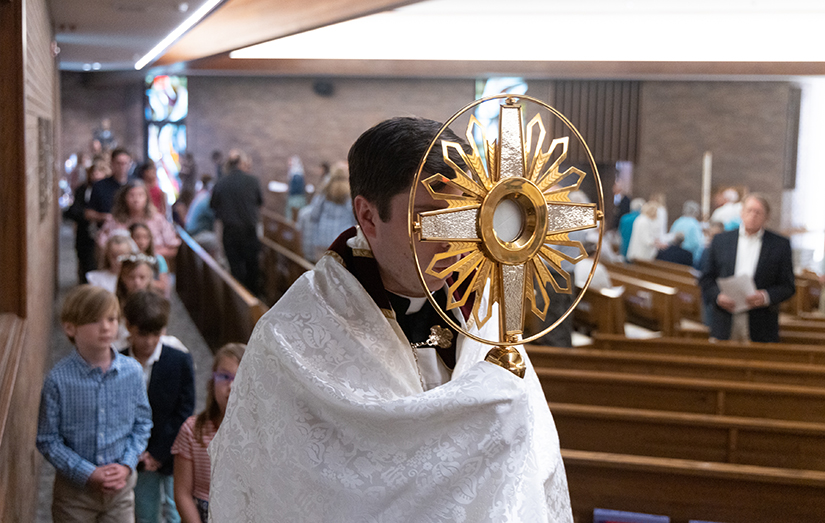
Archdiocesan and parish leaders set sights on evangelizing the True Presence through reverence, encounter
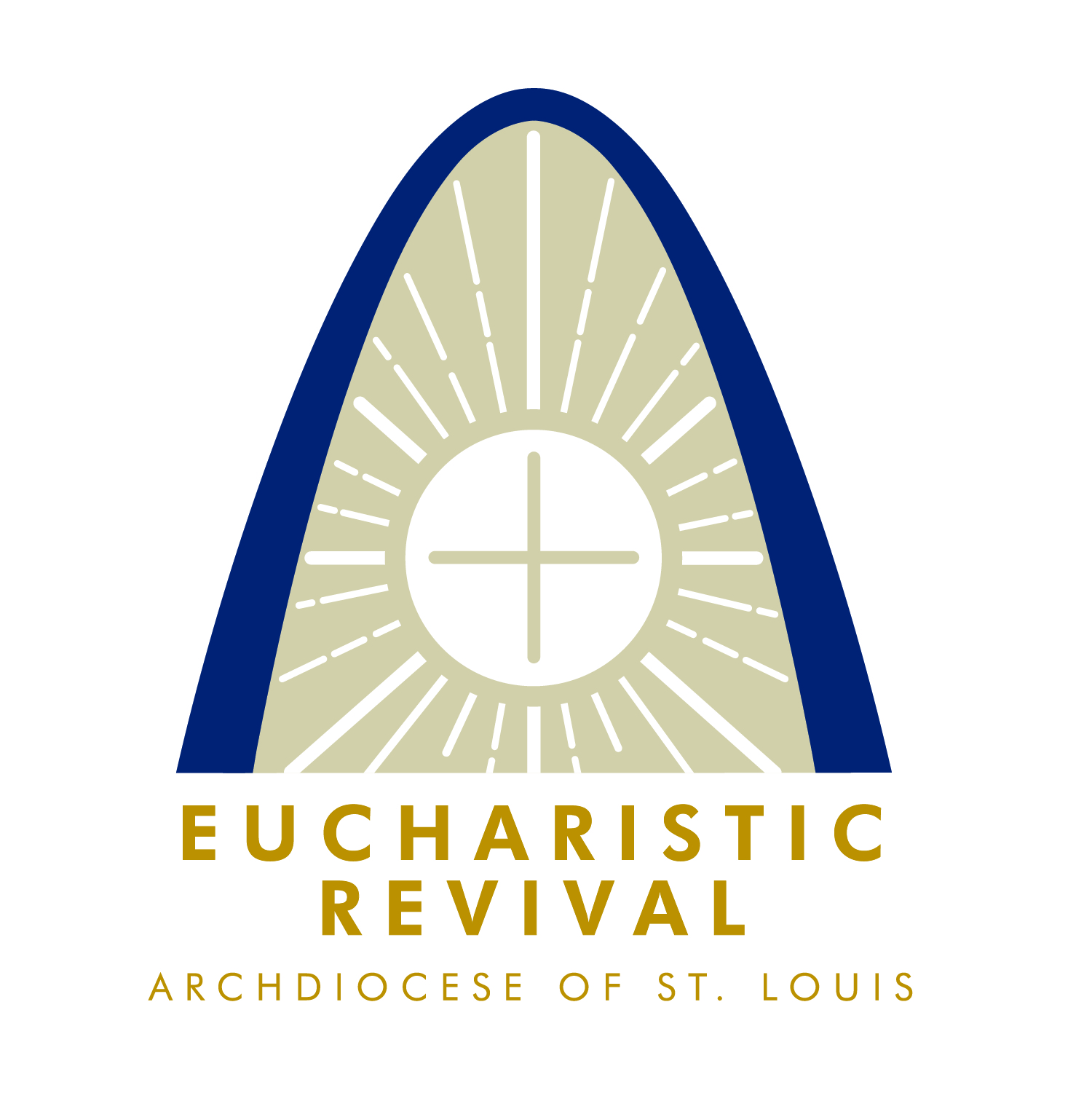
Jane Guenther has seen the healing power of the Eucharist as an Extraordinary Minister of the Eucharist, director of the archdiocesan Catholic Renewal Center and now serving with the executive board of the National Eucharistic Revival.
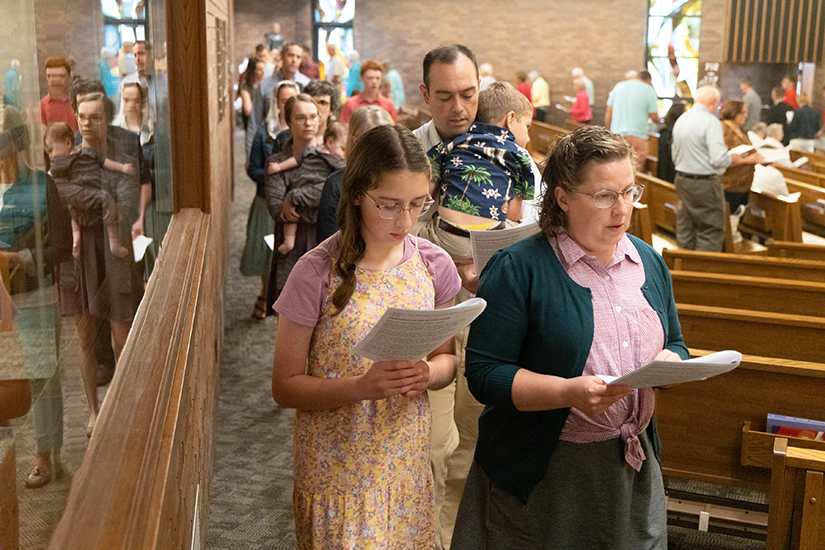
“We should stand in awe of who God is,” Guenther said. “When He comes to us in the sacredness of that mystery of the Eucharist, we need to change our attitude. The sacredness of mystery of the Eucharist is so important that we need to try to revitalize that reverence.”
June 11 marked the start of the parish year of the National Eucharistic Revival, a three-year movement within the United States to nurture belief and devotion to the Real Presence of Jesus Christ in the Eucharist. The parish year is the revival’s second stage and seeks to help Catholics encounter the Eucharist within their own parishes.
At St. Gerard Majella Parish in Kirkwood, pastor Father Michael Grosch and associate pastor Father Christopher Rubie are looking to build upon a solid foundation of reverence for the Eucharist during the parish year of revival.
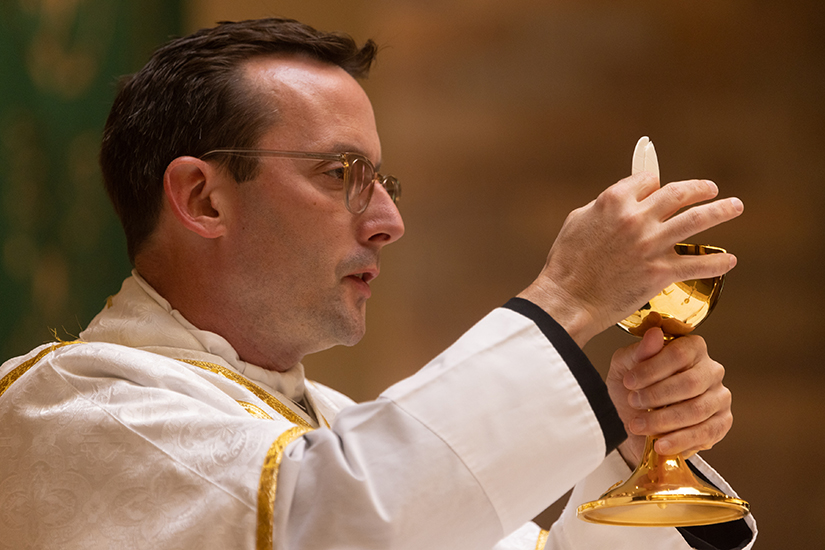
“I hope this year people gain a better understanding of what it is that the Church actually believes about the Eucharist,” Father Grosch said. “But it’s not just about the head, it’s about the heart, right? I hope people also recognize the heavenly reality that they’re entering into and have a renewed desire for Christ in the Eucharist.”
St. Gerard Majella Parish already offers perpetual adoration, two daily Masses and frequent catechetical opportunities to learn about the Eucharist through small groups and other educational sessions. This year, the priests hope to invite even more people to spend intentional time with the Lord.
“When you are really intentional in the time you spend with somebody, it shows, and it’s evident to the people around you. Your willingness to just slow down and be present to them communicates volumes,” Father Grosch said. “That is the same in our relationship with Christ.”
This past school year, Father Rubie visited classrooms to talk to students about the Eucharist and teach them about the liturgy.
Father Grosch and Father Rubie believe Sunday Mass is the best opportunity to evangelize the True Presence — not through extra-long homilies, but intentionally reverent liturgies.
“The greatest way to grow in deeper appreciation and devotion to the Eucharist is through the art of celebrating Mass, especially through our reverence,” Father Rubie said. “It’s not just in what you say, but it’s also in how you communicate through bodily expression. I think that that’s a very key and impressionable thing.”
During Mass, the priests focus on slowing down, enunciating and conducting their movements in a reverent way. At the end of Communion, they both take time to purify the vessels at the altar rather than in the sacristy after Mass.
“Purifying the chalice and the ciborium is a way to reflect upon the fact that what I encountered, what I received, was a sacred moment,” Father Grosch said, “a sacred time that is separate and distinct from any of the mundane things that I do in my life.”
The physical actions and reverence demonstrated by the priests and other ministers during the liturgy communicate a powerful message to the congregation, said Father Nicholas Smith, director of the archdiocesan Office of Sacred Worship.
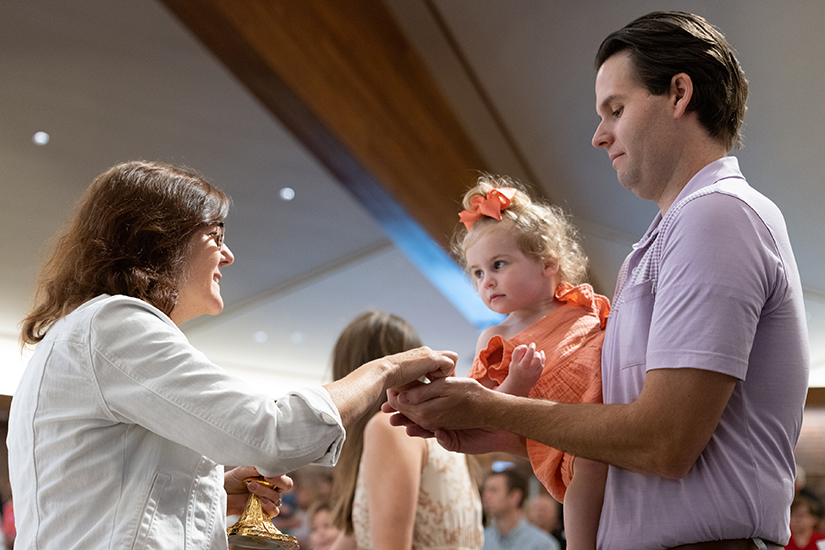
“People take cues from the ministers,” Father Smith said. “I really do think when they see priests, deacons or servers being reverent that kind of just turns on a light in their head.”
Guenther, director of the archdiocesan Catholic Renewal Center, is on the executive board for the National Eucharistic Revival. She hopes that the revival will inspire the laity as well as priests.
“Priests have 100 million things that are getting thrown at them. It will take lay leadership and people that want to see this national revival be lived out to lead the effort,” Guenther said. “This revival is going to change the culture of the parish.”
Joyce Markowski, a parishioner at St. Gerard Majella, has always had a deep devotion to the Eucharist. She has served for 20 years as an Extraordinary Minister of Holy Communion and sees the positive effects that liturgical ministers can have.
“A reverent liturgy helps you to know that (the host) is Jesus, that He is present,” Markowski said. “It’s the community around your parish that helps you recognize the True Presence; this isn’t a Chick-fil-A or a bar. These people help you to recognize that you are consuming Jesus.”
Markowski has seen how a deep devotion to the Eucharist has helped her faith life grow. With the year of parish revival, Markowski hopes that it will inspire the same devotion, wonder and reverence within her fellow parishioners.
“When you go to Mass you are not here to get anything; you are here to give your praise, give your worship,” Markowski said. “Whether it is through singing poorly, like I do, or sitting and praying, the important thing is that we recognize that Jesus is here and He must be at the core of our community.”
>> National Eucharistic Revival
The National Eucharistic Revival is a three-year, grassroots movement sponsored by the U.S. bishops. Aimed at evangelizing the True Presence of the Eucharist to Catholics across the United States, the revival is now in its second year. From June 11 until the National Eucharistic Congress in Indianapolis July 17-21, 2024, the parish year will offer expanded opportunities for Catholics to learn more and encounter Jesus in the Eucharist within their own parishes. Following the parish year of revival, pilgrims will process from four cities — San Fransisco, California; Lake Itasca, Minnesota; Brownsville, Texas; and New Haven, Connecticut — with the Eucharist to Indianapolis for the Congress. For updates, subscribe to the National Eucharistic Revival at stlreview.com/3Npqie4.
Father Michael Grosch’s tips to participate fully in the Liturgy of the Eucharist:
1. Sit in the “buisness class section,” the front pews. When you are in the back of the church, you can easily become distracted by those in front of you. When you are in the front, it is just you and the Lord. An added bonus — there is no extra cost.
2. Arrive to Mass on time, or better yet, early. If you arrive to Mass late, you may feel discombobulated and confused. Arriving early allows you to settle yourself and enter into the sacred time.
3. Sing during the liturgy. Even if you are a bad singer, singing allows you to participate and enter into the mystery that is about to occur.
Jane Guenther has seen the healing power of the Eucharist as an Extraordinary Minister of the Eucharist, director of the archdiocesan Catholic Renewal Center and now serving with the executive … The source and summit
Subscribe to Read All St. Louis Review Stories
All readers receive 5 stories to read free per month. After that, readers will need to be logged in.
If you are currently receive the St. Louis Review at your home or office, please send your name and address (and subscriber id if you know it) to subscriptions@stlouisreview.com to get your login information.
If you are not currently a subscriber to the St. Louis Review, please contact subscriptions@stlouisreview.com for information on how to subscribe.

